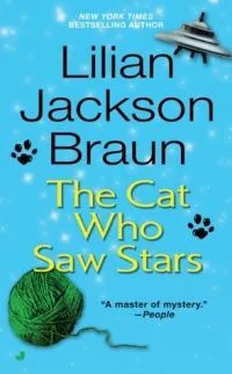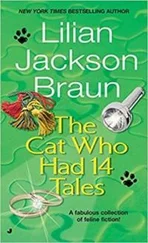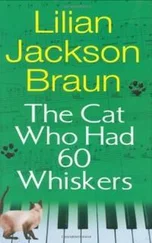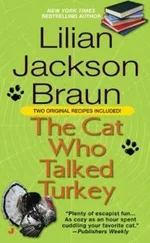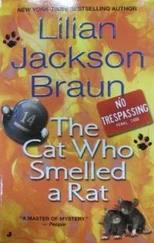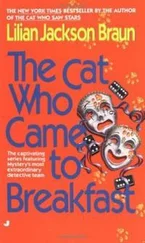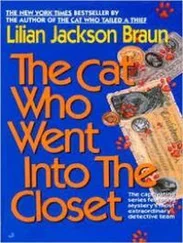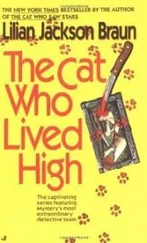“Hang it over the fireplace in his lodge on Grand Island.”
“Hmmm… I could use one of those myself.” He was thinking of the gable end above his own fireplace, a large blank wall that had originally displayed a mounted moosehead; its dour expression had been a depressing reminder of animal rights. Later, the wall showcased a collection of lumberjack tools: axes, a peavey, and crosscut saws with murderous two-inch teeth - equally discomforting. A wheel, on the other hand…
“There were two of them, from a field combine,” Arnold said. “The other one’s in my main store in Lockmaster. I’ll have it sent up here, but it’ll take a couple, three days.”
“No rush… I’d also like to inquire about the chair in the window. What is it? There were eight of them on a float in yesterday’s parade.”
“That’s a pressed-back dining chair, circa 1900, sometimes thought of as a kitchen chair. In the country, a lot of dining was done in the kitchen. In 1904, or thereabouts, the Sears catalogue offered this chair for ninety-four cents. Did you hear me right? Ninety-four cents! They must’ve sold millions of ‘em… Pretty thing, ain’t it?”
“There’s something debonair about it,” Qwilleran said.
It was golden oak, heavily varnished, with a hand-caned seat and nine turned spindles - almost pencil-thin - and a deep top rail that had a decorative design pressed into it. Two turned finials on top, like ears, gave it a playful fillip but would be practical handgrips.
The dealer said, “This may have been a knock-off of an earlier and more expensive design - with the top rail carved, and a price tag more like two fifty. The ones I’ve seen around here are all in the ninety-four-cent class. The seat on this one has been recaned. I’ll make you a good price if you’re interested.”
“I’ll think about it,” Qwilleran said, meaning that he had no intention of buying. “But I’ll definitely come back for the wheel in a couple of days… What do you know about the restaurant across the way?” he added as Arnold accompanied him to the door.
“I hear the food’s good.”
“Have you had contact with Owen Bowen?”
“Only through Derek. He’s working there part time, you know. Derek said the entry - where customers wait to be seated - needed some spark. So we put our heads together, and I lent them a setup for the summer months - some Waterford crystal in a lighted china cabinet. We brought it up from the Lockmaster store. And that so-and-so from Florida never picked up the phone to say thank-you, let alone send over a piece of pie. Phreddie has better manners than Owen Bowen!”
Qwilleran’s watch told him that the lunch hour had ended at Owen’s Place, and his intuition had told him that Derek would be heading for Elizabeth’s Magic to relax and report on events.
Qwilleran headed in the same direction, stopping only for a hot dog and two copies of the Moose County Something. On the way he thought about another reader-participation stunt: He could take a census of pressed-back chairs in Moose County! … Run a photograph of the one at Arnold’s… Ask, “Do you own one or more of these historic artifacts? Send us a postcard.” Arch Riker chaffed Qwilleran about his postcard parties, although he knew very well that subscribers looked forward to the monthly assignments and talked about them allover the county.
On Oak Street there were three contiguous storefronts, each with a windowbox of petunias: Elizabeth’s Magic in the center, flanked by a realty agent and a hair stylist. When Qwilleran opened the door, an overhead bell jangled, and three persons turned in his direction: Elizabeth and two customers of retirement age, one tall and one short. They had been his neighbors in Indian Village.
“Ladies! What brings you to the haunts of coot and hem?” he asked.
They greeted him happily. “That’s Tennyson!” said the tall one.
“My favorite poem: The Brook,” said the other. They were the Cavendish sisters, retired from distinguished teaching careers Down Below. Qwilleran had rescued one of their cats when it became entangled in the laundry equipment. “I hear you’re living in Ittibittiwassee Estates,” he said.
“Yes, they gave us an apartment with pet privileges.”
“We’d never go anywhere without Pinky and Quinky.”
“We’re here to see the play tonight.”
“They have an activities bus that takes residents on day-trips.”
“How is Koko?”
“And how is that dear Yum Yum?”
“They find the beach stimulating,” he said, “and the screened porch is their university. Koko studies the constellations at night and does graduate work in crow behavior during the day.”
“He’s such an intellectual cat!” said the tall sister.
“Yum Yum is majoring in entomology but yesterday distinguished herself by saving a life.”
“Really?” the sisters said in unison.
“You know how birds knock themselves groggy by trying to fly through a window screen or pane of glass… Well, a hummingbird flew into the porch screen and got its long beak caught in the mesh. It was fluttering desperately until Yum Yum jumped to a nearby chairback and gave the beak a gentle push with her paw.”
“She’s so sweet!” the short sister said.
“Wouldn’t you know she’d be a humanitarian?” the other one said.
More likely, she thought it was a bug on the screen, Qwilleran mused.
The bell over the door jangled, and they all turned to see Derek Cuttlebrink barging into the shop. “Just got off work,” he announced. “Five hours till curtain time. Got any coffee?” He loped to the rear of the store. Qwilleran followed after exchanging pleasantries
with the sisters and giving Elizabeth one of his newspapers.
The two men sat in the black nylon sling chairs with plastic cups of coffee. “I never touch the stuff when I’m on duty,” Derek said.
“How’s business?”
“Great at lunchtime. I’m not there at night, so I don’t know what kind of crowd they get for dinner.”
“Do you and your boss hit it off well?”
“Oh, sure. We get along. He needs me, and he knows it. I don’t have to take any of his guff.” He lowered his voice. “I know more about the food business than he does. At least I’ve cracked a book or two. He’s just a joe who likes to eat and thinks it would be a kick to own a restaurant. They’re wrong! It’s one of the hardest, most complicated businesses you could pick. Owen happened to latch on to a great chef. She’s a creative artist, trained at one of the best chef schools. She’s really dedicated! Besides that, she’s a nice person - much younger than he is. And not as stuffy. He expects to be called Mr. Bowen. She says, ‘Call me Ernie.’ Her name is Ernestine. She works like a dog in the kitchen while he goofs off and goes fishing.”
“Whatever he happens to reel in, I suppose, goes on the menu as catch-of- the-day. At market price.”
“Well… no. It’s a funny thing, but Owen says Ernie isn’t comfortable with lake fish, being a Floridian, so he fishes for the sport. Whatever he catches, he throws back. The guy’s nuts!”
“Hmmm,” Qwilleran said, smoothing his moustache. “What’s your bestseller at lunchtime?”
“Skewered potatoes, hands down.”
“I’ve heard people talk about them. What are they?”
Derek yelled, “Liz, got any skewers left?”
“A few,” she said. “I’ve placed another order, and Mike’s turning them out as fast as he can, but we can hardly keep up with the demand.”
She showed Qwilleran a set of the foot-long needles of twisted iron with sharp points. At the opposite end each had a decorative medallion for a fingergrip. She said, “If you bake potatoes on skewers, the baking time is shortened, and they’re flakier, more flavorful, and more nutritious.”
Читать дальше
